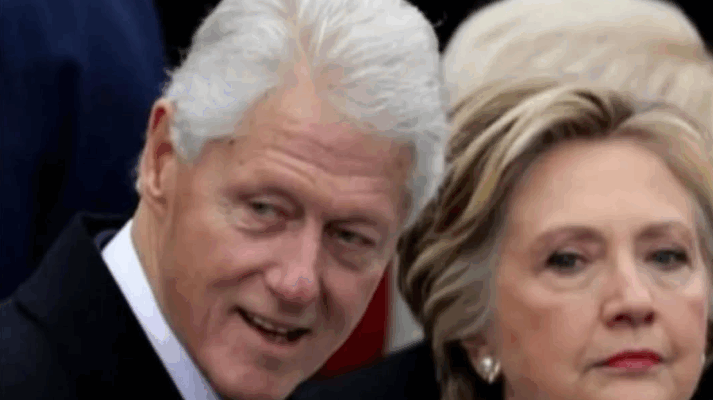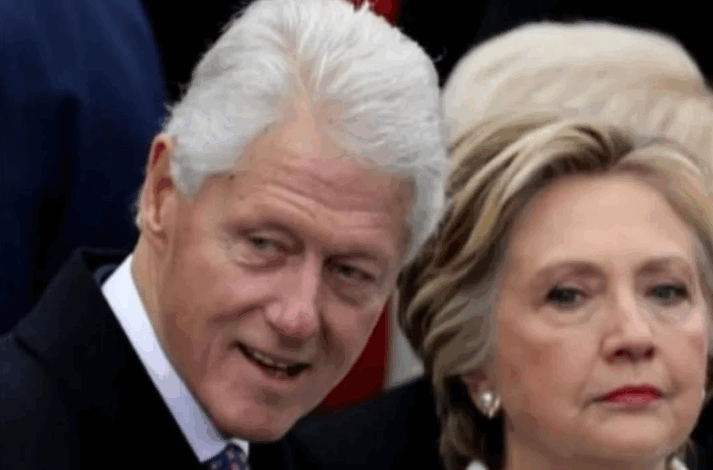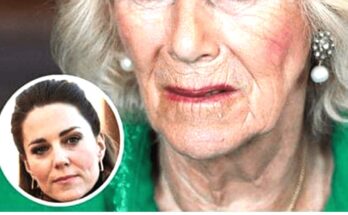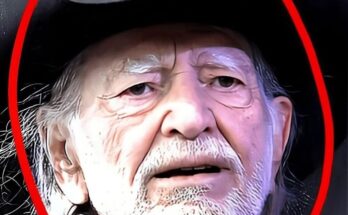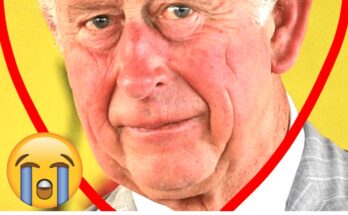Former President Bill Clinton stood before the nation today with tears in his eyes, his voice trembling as he delivered a somber announcement that left millions in disbelief. The moment was heavy, his usually steady tone faltering under the weight of what he was about to say. Gone was the confident, charismatic leader that America had come to know — in his place stood a man visibly burdened by grief, trying to find the strength to speak truths he wished he didn’t have to. Cameras clicked, flashes lit the room, but even the media seemed hesitant to break the fragile silence surrounding him.
When he began to speak, every word carried the strain of emotion. Clinton paused often, as if every sentence demanded more strength than the last. It was clear this was not the polished performance of a seasoned politician but the raw expression of a man facing something deeply personal. His eyes glistened with tears that he fought to hold back, but emotion eventually broke through the careful composure that had defined so much of his public life. “This is not just about politics,” he said quietly. “This is about loss, responsibility, and truth.”
The announcement itself — though details would emerge later — was devastating. It involved someone close to him, a personal tragedy intertwined with public consequence. Clinton’s pain was unmistakable. The man who once commanded crowds with ease was now visibly fragile, his words quivering with sorrow. He spoke of accountability, of facing hard realities, and of the need for compassion in times when division feels easier.
Reporters in the room, normally relentless in pursuit of a quote, stayed silent. No one interrupted. No one dared to fill the air that hung thick with grief. Even the faint sound of a camera shutter seemed inappropriate. This wasn’t politics as usual; it was something far more human.
He went on to speak about resilience — the idea that, despite the heartbreak, the country had to move forward. He reminded the public that moments like this define not only leaders but the people they serve. “We can’t allow sorrow to divide us,” he said, his voice shaking. “We have to face it together. We have to remember what binds us.” It was the kind of appeal that had marked his presidency during times of turmoil, but now it carried a different kind of weight — the weight of someone who knew loss firsthand.
Observers described the moment as one of the most emotional public appearances of his life. The tears in his eyes weren’t performative — they were the tears of a man confronting something he couldn’t control. Clinton had been through political battles, scandals, and scrutiny before, but this was different. This was personal devastation meeting public responsibility.
As he continued, his tone shifted slightly. Beneath the sorrow, there was resolve. He spoke about hope, about the necessity of unity even in the face of unbearable pain. He acknowledged mistakes, regrets, and lessons learned the hard way. “We all make choices,” he said quietly, “and sometimes those choices lead to consequences we never imagined. But what defines us isn’t the fall — it’s what we do after.”
For a brief moment, Clinton looked out at the crowd — journalists, aides, former staffers — and met their eyes one by one. There was no political calculation in his expression, no attempt to spin or defend. Just grief, fatigue, and an honest attempt to communicate something real. The years had softened his face, but they hadn’t dulled his ability to connect. Even now, broken and tearful, he had the room in the palm of his hand — not through rhetoric, but through raw truth.
As he neared the end of his remarks, Clinton spoke of his late mother and the lessons she taught him about resilience and humility. “She always told me,” he said, “that strength isn’t the absence of tears. It’s the courage to keep going when you have every reason to stop.” His voice cracked, and for a moment, he couldn’t continue. A long silence followed — the kind that stretches time. When he finally did speak again, it was barely above a whisper: “I’m asking the country for that same strength now.”
The room seemed frozen. A few quiet sobs could be heard from the audience. Even the most seasoned reporters were visibly moved, caught off guard by the sheer vulnerability of the moment.
When he finally stepped away from the podium, the applause was hesitant at first — a few claps breaking through the heavy quiet — then slowly building into a standing ovation. But it wasn’t the celebratory kind. It was an acknowledgment of humanity, respect for a man who, for once, wasn’t trying to persuade or lead, but simply share his pain.
As he walked off stage, Clinton stopped briefly, turned back, and gave a small nod before disappearing behind the curtain. The cameras stayed trained on the empty podium, as if waiting for someone to fill the silence he left behind. But no one did.
Outside, the world reacted instantly. News outlets scrambled to make sense of the announcement, headlines blared across every network, and social media flooded with reactions — some sympathetic, some cruel. But what remained consistent was the shared sense that something significant had just happened. Not a political shift, not a scandal, but a deeply human moment in the life of a man who had lived most of his existence under the world’s scrutiny.
Later that evening, clips of the speech replayed across every major channel. Commentators analyzed his tone, his phrasing, the emotion in his eyes. Some called it the most vulnerable speech of his life. Others said it was the closest the public had ever seen to the real Bill Clinton — not the strategist, not the orator, but the man.
Behind the scenes, those close to him said the speech had taken everything out of him. He had debated for days whether to speak publicly at all, torn between his instinct to protect his privacy and his sense of duty to be transparent. In the end, he chose honesty — and it showed.
The image that would stay with people wasn’t of the politician who once commanded rallies and filled stadiums, but of the aging man who stood under bright lights, voice breaking, acknowledging his pain in front of millions. For once, the spotlight didn’t seem like a weapon or a stage — it was just illumination, casting light on a truth that no amount of political polish could hide.
By the next morning, the world had already moved into analysis mode, but those who witnessed it in person said they’d never forget it. Because what they saw wasn’t just a former president — it was a man stripped of power, stripped of pretense, standing alone with the weight of his words.
And maybe that was the point. For all the speeches, campaigns, and years in the public eye, this one moment — raw, unfiltered, painfully human — might be the one that defines him most.
